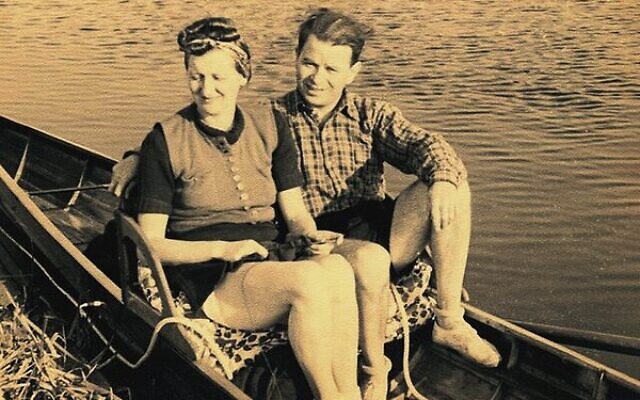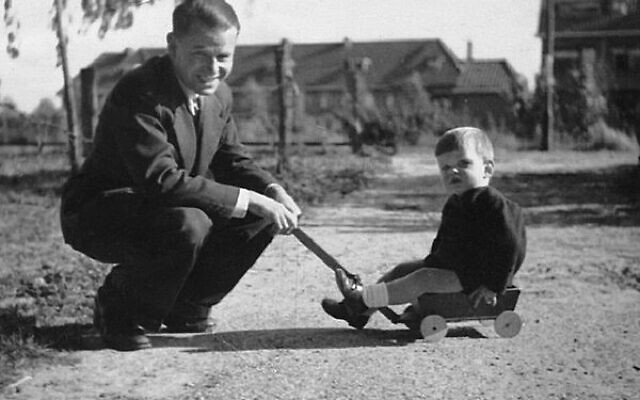‘My father was deported with the Franks’
The betrayal of Dutch Jews during the war, including the Frank family.
As a Dutch Holocaust survivor, and having lost 100 relatives in the Shoah, I did research over many years to get as much information as possible. I also recorded lengthy interviews with my mother and an uncle, and used their diaries and their numerous helpful documents. So I think I can comment on the betrayal of the Franks.
Dutch law requires residents to register at the civil registries. This included one’s religion. During the war people had to obtain proof they were Aryan and subsequently got personal ID cards. Those for Jews had a big “J” stamped in them for obvious reasons.
The most recent census was held in December 1930 and was not relevant for this purpose.
The Jewish Council regularly had to provide a list of Jews for transfer to the camp at Westerbork in preparation for deportation. If it would not, its members were threatened with deportation, so there was an ‘incentive’ to follow the German ‘requests’.
Therefore, Jews who were going into hiding knew it was unwise to report their whereabouts to this council. Only the people who organised hiding places knew where they were hiding.
Perhaps if one of these was arrested, they may have betrayed those in hiding under duress. This happened, for example, to our family friends Max and Julie Verdoner. Max eventually perished in a Mauthausen satellite camp, but Julie survived Auschwitz and long after the war told me that she did not hold a grudge against those who betrayed them, when she heard they were under duress.
Some have suggested that it is more likely someone flushed the toilet at a time when no one was supposed to be in the building and this was heard by a neighbour.
Otto Frank arranged his family’s hiding through his employees. No one else was informed. So only his employees could betray them. However, this is unlikely, unless one of them inadvertently dropped this information and someone overheard it, who then reported them and collected Dfl 7.50 for each betrayed Jew.
In the recently-published book, The Betrayal of Anne Frank, the former FBI agent conducting the cold case investigation points the finger at Arnold van den Bergh as the betrayer, but van den Bergh could not have known where the Franks were hiding.
The anonymous letter sent to Otto Frank after the war that stated, “Your hiding place in Amsterdam was in that time partly shared with the Central Agency for Jewish Emigration by A. van den Bergh, who had lived near the Vondel Park”, is complete rubbish.
That agency was located in a completely different suburb at Adema van Scheltemaplein 1.
Contrary to what Eddy Boas wrote, (AJN 04/02), neither the Dutch police nor Dutch Nazis were involved in their betrayal or arrest.
A Simon Wiesenthal Centre article stated that years ago the former SD officer Karl Silberbauer confessed that his superior gave him the address and ordered him to arrest the families hiding in the attic, which he did.
He did not know how his superior got this information. His superior could not be asked, because he committed suicide soon after the war.
My father was in Westerbork in the same barracks as the Franks. He was there from April 1, 1944. The Germans used this barracks to house Jews considered criminals, because they ignored their orders to report for transportation. So its occupants were to be shipped out soon after their arrival. This explains why the Franks were deported within about a month.
My father was in there much longer, because since he was a former soldier, he was trying to be considered a POW. There were various actions undertaken by my mother and others to free him. He was deported to Auschwitz in the same train as the Franks.

I have evidence that he was in the sub-camp of Auschwitz called Gleiwitz. The prisoners there were evacuated on or about January 18, 1945, the same date Mr Boas talks about.
However, contrary to Mr Boas’ claim that they were all moved to the West, many were moved elsewhere. The family friends I mentioned and my father survived Auschwitz and Julie ended up in Gross Rosen where she was liberated. But her husband ended up in Melk, a sub-camp of Mauthausen in Austria, while my father ended up in Mauthausen’s main camp. Both of them were murdered.
We will never know who betrayed the Franks unless a written confession by the betrayer is discovered.
I am sorry to hear that Mr Boas never received compensation. I did several times starting in the late 1950s.
Last year, I received money from the Dutch national railway because it had transported Jews to the camps. It is too late to apply for these.
However, he can apply under the WUV law at the Dutch Consulate in Sydney.
A book about my family’s lives in the Netherlands and Germany from 1905 to 1946 will be published soon. Anyone interested in it may contact me at ghgoldsteen@netspace.net.au
Dr George Goldsteen is a Holocaust survivor. He lives in Launceston, Tasmania.


comments